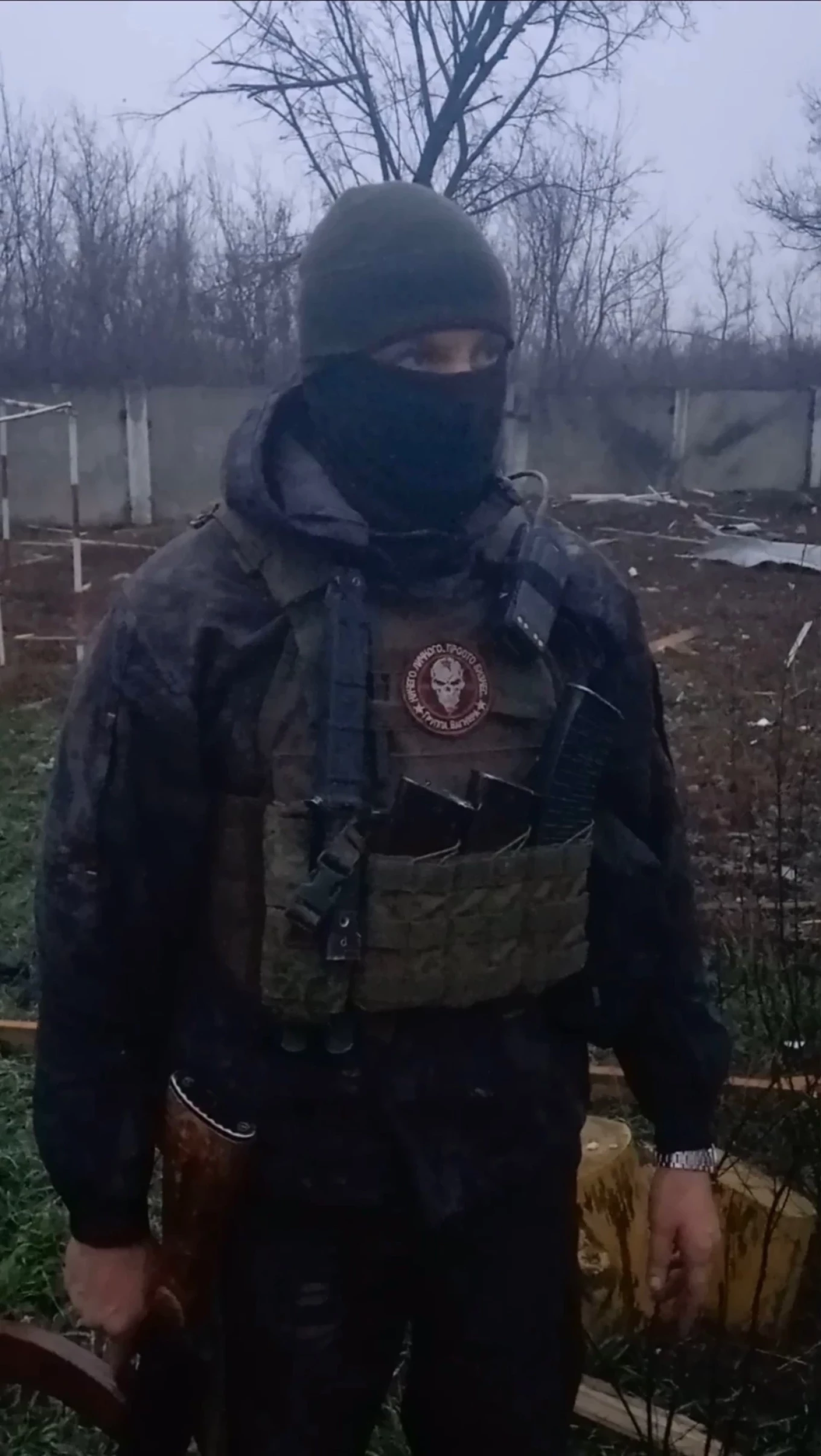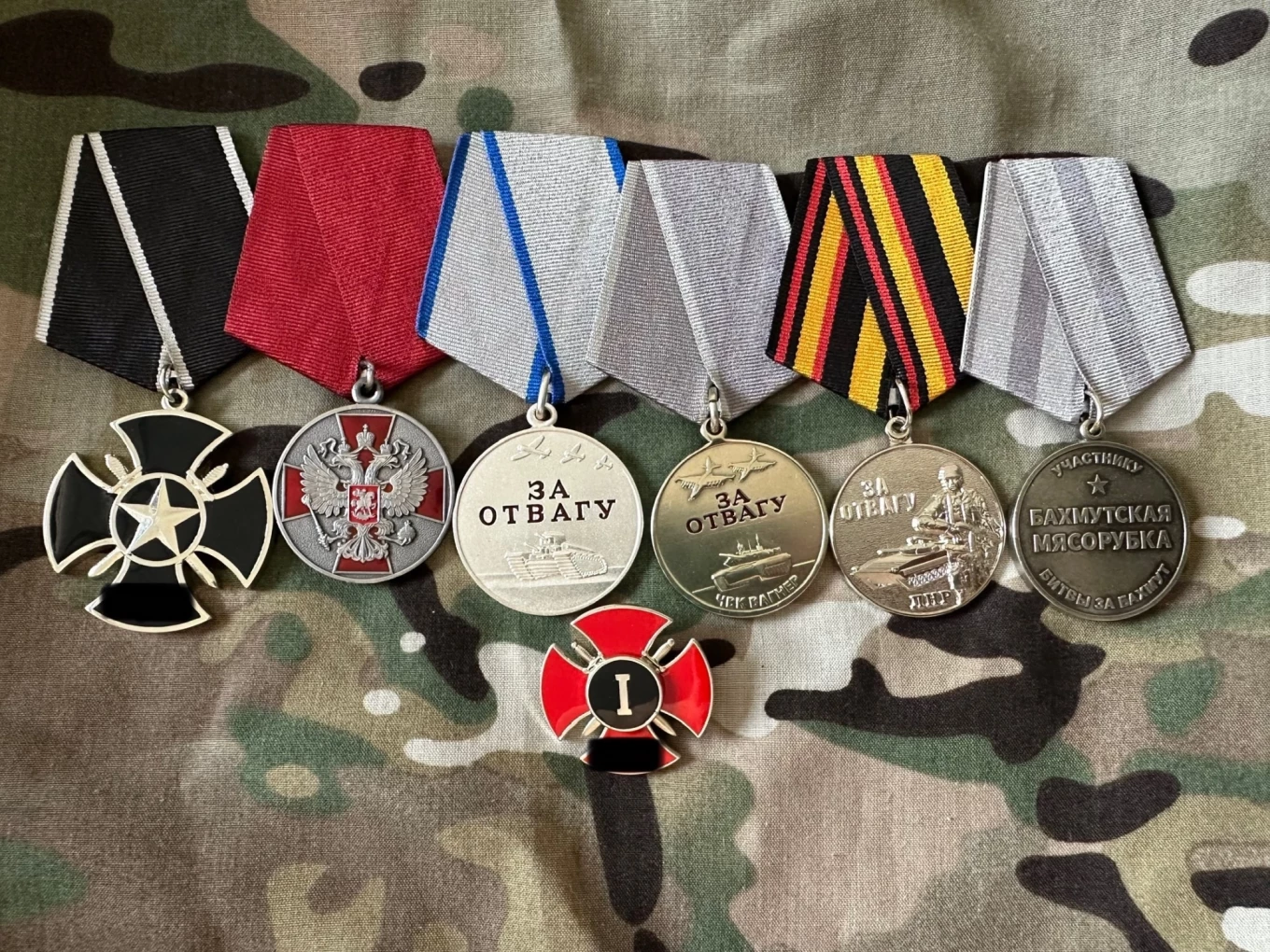“Will I be able to shoot my comrades?”
Vlad was tormented by this question during the events of June 24, when a convoy of rebel mercenaries led by the leader of the Wagner Group Yevgeny Prigozhin advanced on Moscow and Russia seemed to be on the brink of civil war.
A former Wagner fighter, Vlad, who asked to change his name for security reasons, is now serving in the Russian army – hence his fear that he could be sent to defend the capital from his former comrades-in-arms.
In the aftermath of the mutiny, which ended with a deal that saw Prigozhin and his men go into exile in Belarus, four former and current Wagner fighters who spoke to The Moscow Times shared divergent views toward the mutiny and its impact on the PMC’s future.
Like other former mercenaries, Vlad, 29, blamed Prigozhin for pitting Russian soldiers against each other to gain the upper hand in his personal dispute with the Russian Defense Ministry.
Vlad said: “I would not allow myself to turn weapons against our people and, to some extent, against our country.” . “
“My comrades and I fought for the country, not for a daring fool and his personal ambitions,” said Roman, 35, another former Wagner mercenary from Moscow.
personal archive
Roman decided to quit his job in finance last year and join Wagner out of a sense of “civic duty”.
“My country is at war and I cannot stand on the sidelines,” said the former mercenary, who served nine months on the front line in Ukraine, advancing his unit from Popasna to Bakhmut. For his service, he was awarded the Black Cross, one of Wagner’s military awards.
After years operating in the shadows in global conflict zones — and earning a reputation for brutal tactics and rights abuses — the Wagner-Prigozhin group has taken a very public role in Russia’s invasion of Ukraine.
Both Roman and Vlad said they were shocked when Prigozhin declared an armed uprising against Defense Minister Sergei Shoigu and ordered the occupation of the southern city of Rostov-on-Don.
Although they did not agree with Prigozhin’s rebellion, they also blamed the army’s senior officers for allowing the conflict with Wagner to escalate to that point.
“Because of their inattention, the best-prepared military unit in our country has suffered,” said Vlad, referring to “the damage to Wagner’s reputation caused by Prigozhin’s rebellion.”
“If my iron cross makes me 100% a patriot, now I am half a patriot, half a traitor,” said Roman.
While the uprising was thwarted in less than 24 hours after the deal between Prigozhin and Belarusian President Alexander Lukashenko, it still took a heavy toll: about 15 Russian soldiers were killed, including some pilots, and several military vehicles were destroyed.
personal archive
“Our comrades have killed each other, a huge amount of military assets have been destroyed, people are afraid, not to mention the damage done to Russia’s reputation on the geopolitical stage,” said Roman, who criticized Prigozhin’s rebellion for failing to achieve any tangible goals.
“The ‘parquet’ generals are still there,” said Roman, referring to the corrupt and ineffective military leaders Prigozhin supposedly aimed to eliminate.
Unlike Roman and Vlad, other former mercenaries said they remained utterly loyal to Prigozhin, like Malik, 29, who just a week after the coup walked down Nevsky Prospekt in central St. Petersburg in a Wagner cap and shirt. skull logo.
Malik, also a veteran of the Battle of Bakhmut, said, commenting on his clothes: “It’s not forbidden. I’m still a patriot of my country.” The shrapnel wounds on his arms had just healed.
The former mercenary claimed: “Both Rostov supported Wagner and Prigozhin.” “Prigozhin speaks and acts correctly, he did a lot for the country, while I don’t think Shoigu did anything useful at all.”
Some of the mercenaries said they still hoped, despite the failure to produce any immediate results, that Prigozhin’s rebellion would lead to a reconfiguration of the country’s military leadership, which they accused of corruption and incompetence.
“I hope the ‘March for Justice’ served as a warning bell for our government, and that they saw it was time for changes,” said Mikhail, 32, another Wagner mercenary, using Prigozhin’s definition of an uprising.
Mikhail, a former factory worker from central Russia, has been part of the Wagner Group since 2020, operating in the Central African Republic and Ukraine.
While he criticized Prigozhin’s rebellion for being “too radical”, Mikhail’s admiration for Wagner’s leader had not waned since the coup attempt, and said he “remains the leader of the best military organization in the world”.
The fate of the Wagner Group now seems uncertain. In the days following the attempted revolt, the recruitment of mercenaries for the war in Ukraine seemed to be going on as usual in several Russian regions. Recruitment pages It reappeared on the Russian social network VKontakte after it was removed during the insurgency.
personal archive
But as the chairman of the State Duma Defense Committee, Andrei Kartapolov pointed outWagner will now have to sign a contract with the Ministry of Defense, or she will lose state funding and will not be able to participate in the war in Ukraine.
On July 2, Wagner announce that its regional centers were halting recruitment for one month due to Wagner’s “temporary non-participation” in the war in Ukraine and her “transfer to Belarus”.
For Mikhail, nothing has changed for his unit yet. He and his comrades were offered to enroll in the conventional army, but they were “not forced” to do so and he does not intend to.
He plans to return to his unit once he has recovered from his wounds.
“It doesn’t matter where we are, Wagner PMC remains a Russian company that defends Russia’s interests,” says Mikhail. “We will go wherever they tell us to go.”

“Lifelong food lover. Avid beeraholic. Zombie fanatic. Passionate travel practitioner.”


